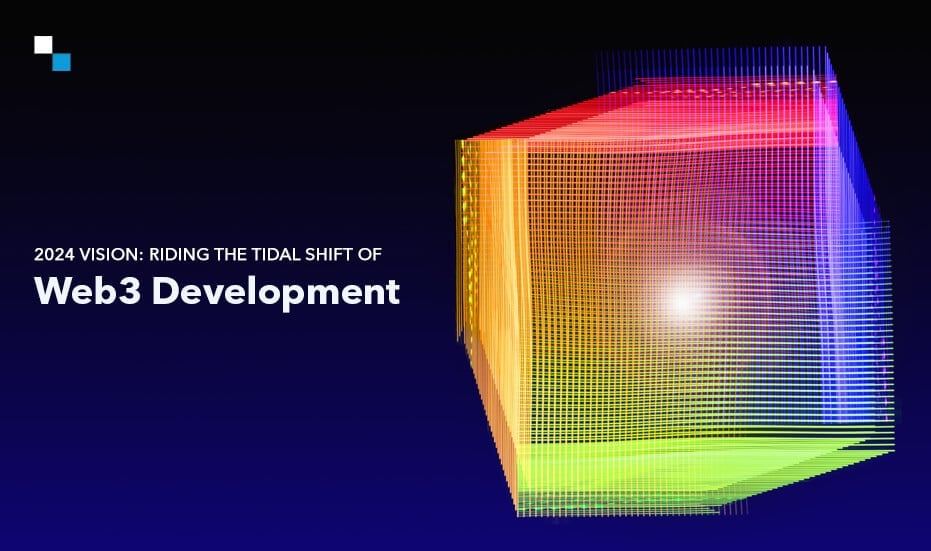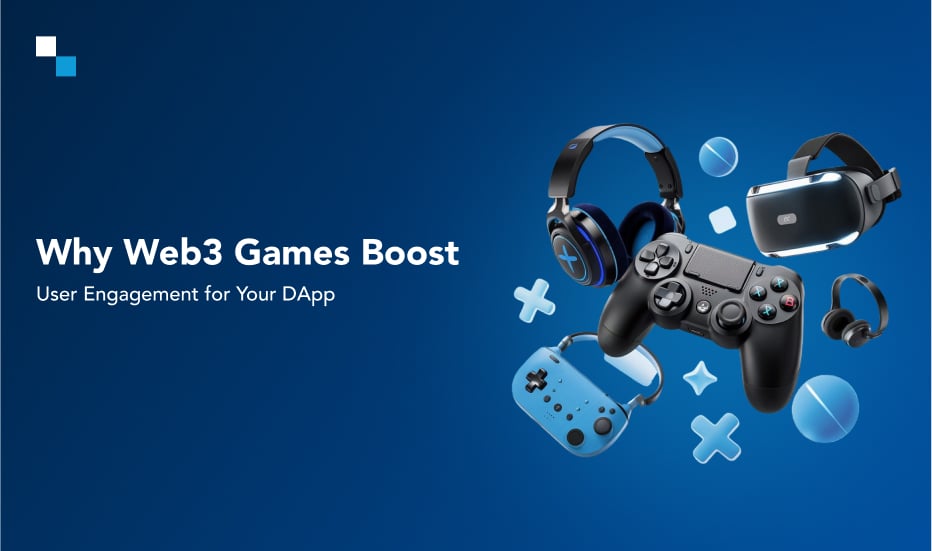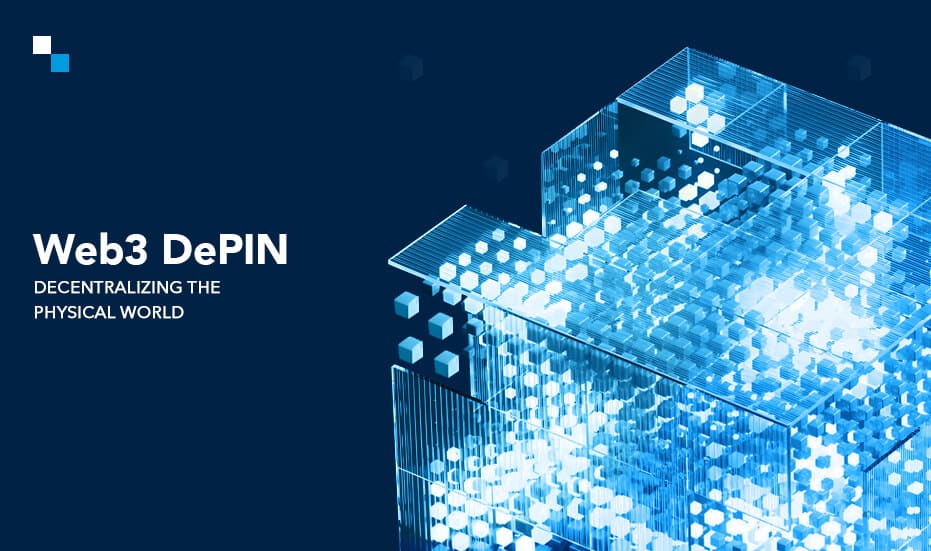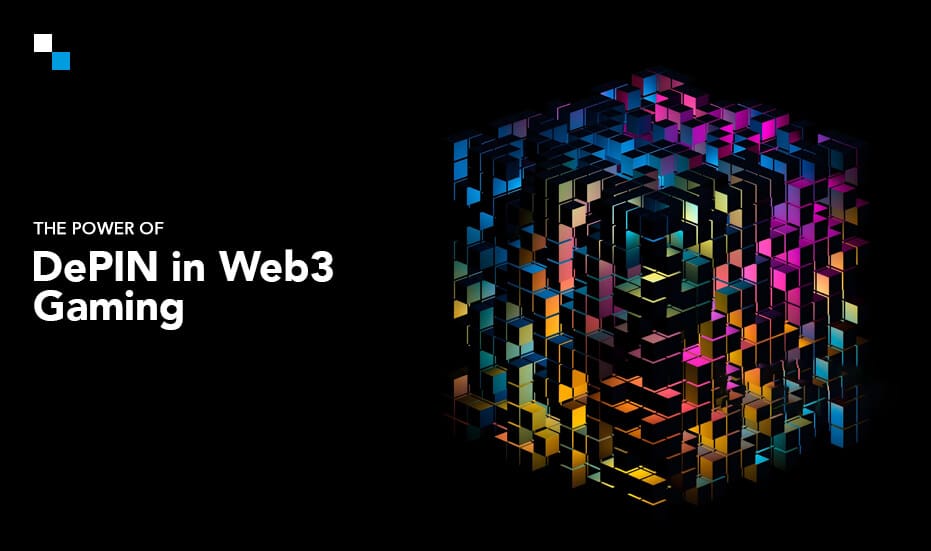
How Stablecoin Development Solutions Will Reshape Lending in 2024?
January 10, 2024
Web3 Use Cases in Real-World Applications
January 12, 2024Are you ready to ride the wave of the future? In 2024, the world of web3.0 development is set to evolve to new heights. This revolutionary change promises to bring a whole new level of innovation and interactivity to the digital landscape. Let’s dive into what Web3.0 is all about and how you can stay ahead of the game.
|
What is Web3.0?
Web3.0, also known as the Semantic Web, is the next generation of the World Wide Web. It is characterized by advanced technologies and protocols that enable machines to understand and interpret information, making the web more intelligent and human-like. This paradigm shift opens up a world of possibilities for businesses and users alike. A web 3.0 developer can leverage the inherent features of blockchain to build a decentralized world in which the participants will experience complete transparency and trust, without losing their privacy.
What more?
Web 3.0 makes it easier to tokenize assets, converting both digital and physical resources into exchangeable tokens. This invention has broad ramifications for the cryptocurrency industry, opening up new investment opportunities and enabling more people to have access to a wide variety of assets.
NFTs, or non-fungible tokens, are more than simply digital artwork these days. In 2024, NFTs will have developed into useful tools for voting rights in decentralized communities, identity management, and even gaming.
The Five Pillars of Web3 Development
Web3 is built on five key pillars that form the foundation of its transformative power. These pillars are:
- Blockchain Technology: Blockchain is at the heart of Web3. It’s, a decentralized ledger that maintains a transparent, tamper-proof record of transactions. Blockchain enables secure and trustless interactions, making it a foundational technology for Web3
- Smart Contracts: Web3 utilizes smart contracts, self-executing contracts that automatically enforce the terms and conditions defined within them. Smart contracts eliminate the need for intermediaries, streamlining processes and enhancing efficiency.
- Artificial Intelligence (AI): AI plays a crucial role in web3.0 development, enabling machines to learn, understand, and make intelligent decisions based on vast amounts of data. This allows for personalized experiences and more efficient systems.
- Decentralization: Decentralization is a core principle of web3 development, aiming to eliminate the middlemen and central authorities that have traditionally controlled the web. With decentralized networks and blockchain technology, users can enjoy increased privacy, security, and control over their data.
- Interoperability: Interoperability refers to the seamless integration and communication between different platforms and applications. Web3.0 aims to tear down the silos that currently exist on the web, enabling data and services to flow freely across various systems.
The Power of Web3.0 in 2024
In 2024, Web3.0 will unlock a whole new realm of possibilities for businesses and individuals. Let’s explore some of the ways in which a web 3.0 developer can revolutionize various industries:
- Enhanced Data Security
With cybersecurity threats becoming increasingly sophisticated, businesses need robust solutions to protect their data. Web3.0 brings decentralized and encrypted data storage options through blockchain technology. This ensures data integrity and security, offering peace of mind to businesses and users alike. - Smart Contracts and Decentralized Applications (DApps)
Web3.0 enables the development of smart contracts and DApps, which bring automation and efficiency to various processes. Smart contracts are self-executing contracts with predefined rules, eliminating the need for intermediaries, reducing costs, and increasing transparency. DApps, on the other hand, open up new avenues for decentralized applications, facilitating peer-to-peer interactions without relying on centralized authorities. - Personalized User Experiences
Web3.0 development takes personalization to a whole new level. With advanced algorithms, machine learning, and AI, websites and applications can tailor content, recommendations, and interfaces to suit individual preferences. This not only enhances user experience but also drives customer engagement and loyalty.
- Improved Supply Chain Management
In 2024, web3 development will revolutionize supply chain management by enabling real-time tracking and traceability. Through blockchain technology, businesses can ensure transparency, reduce fraud, and streamline processes. This will have far-reaching benefits across industries, from logistics to healthcare and beyond. - Virtual and Augmented Reality (VR/AR)
An experienced web 3.0 developer can unlock the potential of immersive technologies like VR and AR. Imagine attending virtual meetings, exploring virtual showrooms, or even trying on clothes virtually before making a purchase. These technologies will transform the way we interact with the digital world, opening up new possibilities for businesses and individuals alike.

Web3 Development in 2024: What to Expect?
As we approach the year 2024, it’s worth considering what we can expect from Web3 development. What new and exciting features will it bring? How will it revolutionize the way we interact with the internet?
Unlike the traditional Web2, which relies on centralized platforms and intermediaries, web3.0 development enables users to have more control over their data and online interactions. Let’s explore how it’s going to impact different industries:
- Financial Services
Finance is one of the industries that will greatly benefit from Web3 development. With the rise of decentralized finance (DeFi) applications, Web3 will enable peer-to-peer transactions without the need for traditional intermediaries such as banks. Smart contracts, powered by blockchain technology, will provide trustless and efficient financial services, from lending and borrowing to decentralized exchanges. In addition, cryptocurrencies will become more integrated into our daily lives, revolutionizing how we make payments and store value.
- Healthcare
Web3 has the potential to transform the healthcare industry by improving the security, privacy, and accessibility of patient data. With blockchain technology, medical records can be securely stored and shared, giving patients more control over their personal information. Additionally, Web3 applications can facilitate telemedicine services, enabling remote consultations and reducing healthcare costs. Furthermore, blockchain-based supply chain management can improve the authenticity and traceability of pharmaceutical products, ensuring patient safety.
- Education
In the field of education, Web3 development can revolutionize the way knowledge is created and shared. Blockchain technology can enable the creation of decentralized learning platforms, where students and educators can interact directly without the need for centralized institutions. This can lead to a more personalized and accessible education system, where individuals can learn at their own pace and have their achievements digitally verified through blockchain-based credentials.
- E-commerce
With the advent of web3.0 development, e-commerce will undergo a transformation towards a more decentralized and secure model. Blockchain technology can provide transparency in supply chain management, verifying the authenticity and origin of products. Additionally, a web 3.0 developer can enable peer-to-peer marketplaces, reducing the dependence on centralized e-commerce platforms. Smart contracts can automate the entire transaction process, ensuring trust and eliminating the need for middlemen. - Entertainment and Gaming
Web3 development will also have a significant impact on the entertainment and gaming industries. Blockchain-based platforms can empower content creators by providing them with more control over their digital assets and revenue streams. Artists and musicians can tokenize their work, allowing for direct monetization and royalties through smart contracts. In the gaming sector, Web3 will enable truly immersive and decentralized gaming experiences, giving players ownership and control over in-game assets.
- Insurance industry
The emergence of Web3 technology has the potential to revolutionize the insurance industry in significant ways. With its decentralized and transparent nature, Web3 enables trustless interactions between participants, eliminating the need for intermediaries and reducing costs and inefficiencies. Smart contracts, powered by blockchain technology, can automate claims processing and payouts, ensuring accuracy and efficiency while minimizing fraud. The integration of Web3 also opens doors to innovative insurance models, such as peer-to-peer insurance or micro-insurance, expanding coverage options for underserved populations.
Conclusion
As we have entered 2024, the wave of Web3 development is set to revolutionize the digital landscape. By embracing the power of decentralized data, smart contracts, personalized experiences, and immersive technologies, businesses and individuals can ride the tide of Web3.0 development and stay ahead of the competition.
Antier can help you ride the exciting wave of web3 in 2024. Discuss your requirements with our experienced web3.0 developer and unlock the endless possibilities this technology has to offer.
Gear up, be prepared, and get ready to navigate the exciting world of Web3.0 in 2024!



